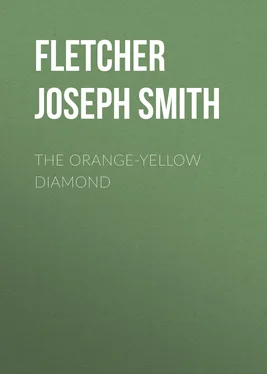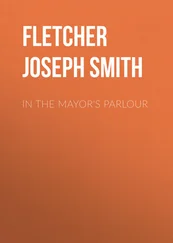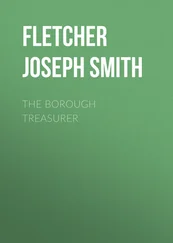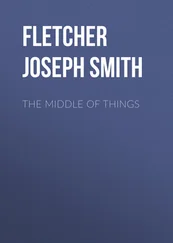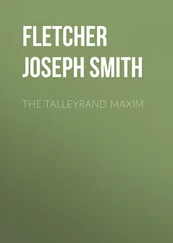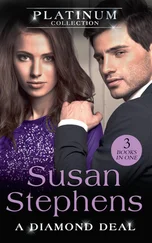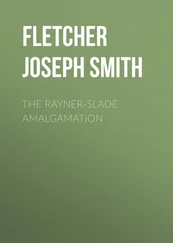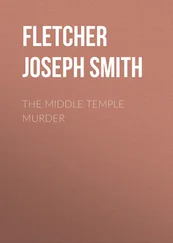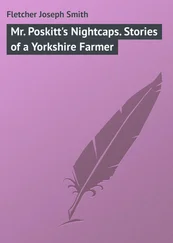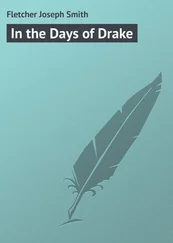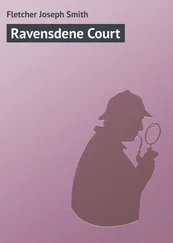Joseph Fletcher - The Orange-Yellow Diamond
Здесь есть возможность читать онлайн «Joseph Fletcher - The Orange-Yellow Diamond» — ознакомительный отрывок электронной книги совершенно бесплатно, а после прочтения отрывка купить полную версию. В некоторых случаях можно слушать аудио, скачать через торрент в формате fb2 и присутствует краткое содержание. Жанр: foreign_prose, Классический детектив, foreign_detective, foreign_antique, на английском языке. Описание произведения, (предисловие) а так же отзывы посетителей доступны на портале библиотеки ЛибКат.
- Название:The Orange-Yellow Diamond
- Автор:
- Жанр:
- Год:неизвестен
- ISBN:нет данных
- Рейтинг книги:5 / 5. Голосов: 1
-
Избранное:Добавить в избранное
- Отзывы:
-
Ваша оценка:
- 100
- 1
- 2
- 3
- 4
- 5
The Orange-Yellow Diamond: краткое содержание, описание и аннотация
Предлагаем к чтению аннотацию, описание, краткое содержание или предисловие (зависит от того, что написал сам автор книги «The Orange-Yellow Diamond»). Если вы не нашли необходимую информацию о книге — напишите в комментариях, мы постараемся отыскать её.
The Orange-Yellow Diamond — читать онлайн ознакомительный отрывок
Ниже представлен текст книги, разбитый по страницам. Система сохранения места последней прочитанной страницы, позволяет с удобством читать онлайн бесплатно книгу «The Orange-Yellow Diamond», без необходимости каждый раз заново искать на чём Вы остановились. Поставьте закладку, и сможете в любой момент перейти на страницу, на которой закончили чтение.
Интервал:
Закладка:
"You saw the young man you speak of quite clearly?" asked the Coroner.
"As clearly as I see you, sir," replied the witness.
"Do you see him here?"
Hollinshaw turned instantly and pointed to Lauriston.
"That's the young man, sir," he answered, with confidence.
Amidst a general craning of necks, Melky whispered to Lauriston.
"You'd ought to ha' had a lawyer, mister!" he said. "S'elp me, I'm a blooming fool for not thinking of it! Be careful—the Coroner's a-looking at you!"
As a matter of fact, every person in the court was staring at Lauriston, and presently the Coroner addressed him.
"Do you wish to ask this witness any questions?" he enquired.
Lauriston rose to his feet.
"No!" he replied. "What he says is quite correct. That is, as regards myself."
The Coroner hesitated a moment; then he motioned to Hollinshaw to leave the box, and once more turned to Lauriston.
"We will have your evidence now," he said. "And—let me warn you that there is no obligation on you to say anything which would seem to incriminate you."
CHAPTER NINE
WHOSE WERE THOSE RINGS?
Paying no attention to another attempted murmur of advice from Melky, who seemed to be on pins and needles, Lauriston at once jumped to his feet and strode to the witness-box. The women in the public seats glanced at him with admiring interest—such a fine-looking young fellow, whispered one sentimental lady to another, to have set about a poor old gentleman like Mr. Multenius! And everybody else, from the Coroner to the newspaper reporter—who was beginning to think he would get some good copy, after all, that morning—regarded him with attention. Here, at any rate, was the one witness who had actually found the pawnbroker's dead body.
Lauriston, his colour heightened a little under all this attention, answered the preliminary questions readily enough. His name was Andrew Carruthers Lauriston. His age—nearly twenty-two. He was a native of Peebles, in Scotland—the only son of the late Andrew Lauriston. His father was a minister of the Free Church. His mother was dead, too. He himself had come to London about two years ago—just after his mother's death. For the past few weeks he had lodged with Mrs. Flitwick, in Star Street—that was his present address. He was a writer of fiction—stories and novels. He had heard all the evidence already given, including that of the last witness, Hollinshaw. All that Hollinshaw had said was quite true. It was quite true that he had gone to Multenius's pawnshop about five-thirty of the previous afternoon, on his own business. He had looked in through both doors and window before entering the side-door: he wanted to know who was in the shop—whether it was Mr. Multenius, or his grand-daughter. He wanted to know that for a simple reason—he had never done business with Mr. Multenius, never even seen him that he remembered, but he had had one transaction with Miss Wildrose, and he wished, if possible, to do his business with her. As a matter of fact he saw nobody inside the shop when he looked in through the front door and the window—so he went round to the side-entrance.
All this had come in answer to questions put by the Coroner—who now paused and looked at Lauriston not unkindly.
"I daresay you are already aware that there is, or may be, some amount of suspicious circumstances attaching to your visit to this place yesterday afternoon," he said. "Do you care to tell the court—in your own way—precisely what took place, what you discovered, after you entered the pawnshop?"
"That's exactly what I wish to do," answered Lauriston, readily. "I've already told it, more than once, to the police and Mr. Multenius's relatives—I'll tell it again, as plainly and briefly as I can. I went into one of the compartments just within the side-door of the place. I saw no one, and heard no one. I rapped on the counter—nobody came. So I looked round the partition into the front shop. There was no one there. Then I looked round the other partition into the back parlour, the door of which was wide open. I at once saw an old man whom I took to be Mr. Multenius. He was lying on the floor—his feet were towards the open door, and his head on the hearth-rug, near the fender. I immediately jumped over the counter, and went into the parlour. I saw at once that he was dead—and almost immediately I hurried to the front door, to summon assistance. At the door I ran into Mr. Ayscough, who was entering as I opened the door. I at once told him of what I had found. That is the plain truth as to all I know of the matter."
"You heard nothing of any person in or about the shop when you entered?" asked the Coroner.
"Nothing!" replied Lauriston. "It was all perfectly quiet."
"What had you gone there to do?"
"To borrow some money—on two rings."
"Your own property?"
"My own property!"
"Had you been there before, on any errand of that sort?"
"Only once."
"When was that?"
"Last week," answered Lauriston. "I pawned my watch there."
"You have, in fact, been short of money?"
"Yes. But only temporarily—I was expecting money."
"I hope it has since arrived," said the Coroner.
"Mr. Ayscough was with me when it did arrive," replied Lauriston, glancing at the detective. "We found it—two letters—at my lodgings when he walked round there with me after what I have just told you of."
"You had done your business on that previous occasion with the grand-daughter?" asked the Coroner. "You had not seen the old man, then?"
"I never to my knowledge saw Mr. Multenius till I found him lying dead in his own parlour," answered Lauriston.
The Coroner turned from the witness, and glanced towards the table at which Mr. Parminter and the police officials sat. And Mr. Parminter slowly rose and looked at Lauriston, and put his first question—in a quiet, almost suave voice, as if he and the witness were going to have a pleasant and friendly little talk together.
"So your ambition is to be a writer of fiction?" he asked.
"I am a writer of fiction!" replied Lauriston.
Mr. Parminter pulled out a snuff-box and helped himself to a pinch.
"Have you published much?" he enquired, drily.
"Two or three stories—short stories."
"Did they bring in much money?"
"Five pounds each."
"Have you done anything else for a living but that since you came to London two years ago?"
"No, I haven't!"
"How much have you earned by your pen since you came, now?"
"About thirty pounds."
"Thirty pounds in two years. What have you lived on, then?"
"I had money of my own," replied Lauriston. "I had two hundred pounds when I left home."
"And that gave out—when?" demanded Mr. Parminter.
"Last week."
"And so—you took your watch to the pawnshop. And—yesterday—your expected money not having arrived, you were obliged to visit the pawnshop again? Taking with you, you said just now, two rings—your own property. Am I correct?"
"Quite correct—two rings—my own property."
Mr. Parminter turned and spoke to a police official, who, lifting aside a sheet of brown paper which lay before him, revealed the tray of rings which Lauriston and Ayscough had found on the table in Multenius's parlour. At the same time, Mr. Parminter, lifting his papers, revealed Lauriston's rings. He picked them up, laid them on the palm of his hand, and held them towards the witness.
"Are these the rings you took to the pawnshop?" he asked.
"Yes!" replied Lauriston. "They were my mother's."
Mr. Parminter indicated the tray.
"Did you see this tray lying in the parlour in which you found the dead man?" he enquired.
"I did."
"Did it strike you that your own rings were remarkably like the rings in this tray?"
Читать дальшеИнтервал:
Закладка:
Похожие книги на «The Orange-Yellow Diamond»
Представляем Вашему вниманию похожие книги на «The Orange-Yellow Diamond» списком для выбора. Мы отобрали схожую по названию и смыслу литературу в надежде предоставить читателям больше вариантов отыскать новые, интересные, ещё непрочитанные произведения.
Обсуждение, отзывы о книге «The Orange-Yellow Diamond» и просто собственные мнения читателей. Оставьте ваши комментарии, напишите, что Вы думаете о произведении, его смысле или главных героях. Укажите что конкретно понравилось, а что нет, и почему Вы так считаете.
